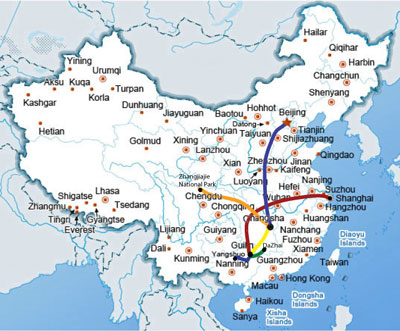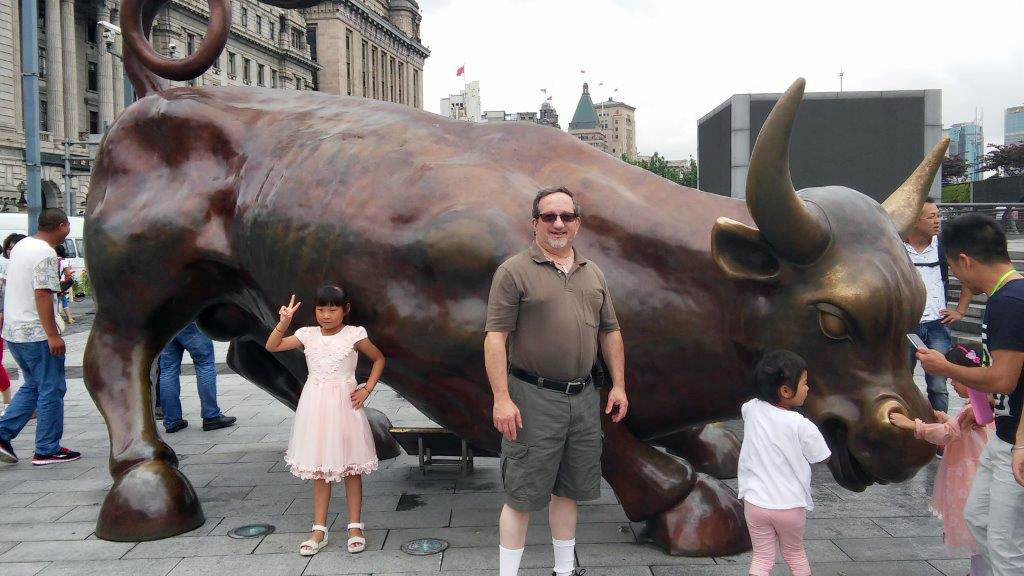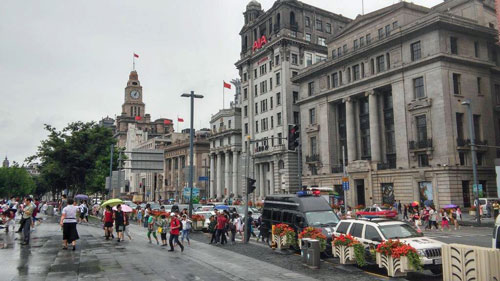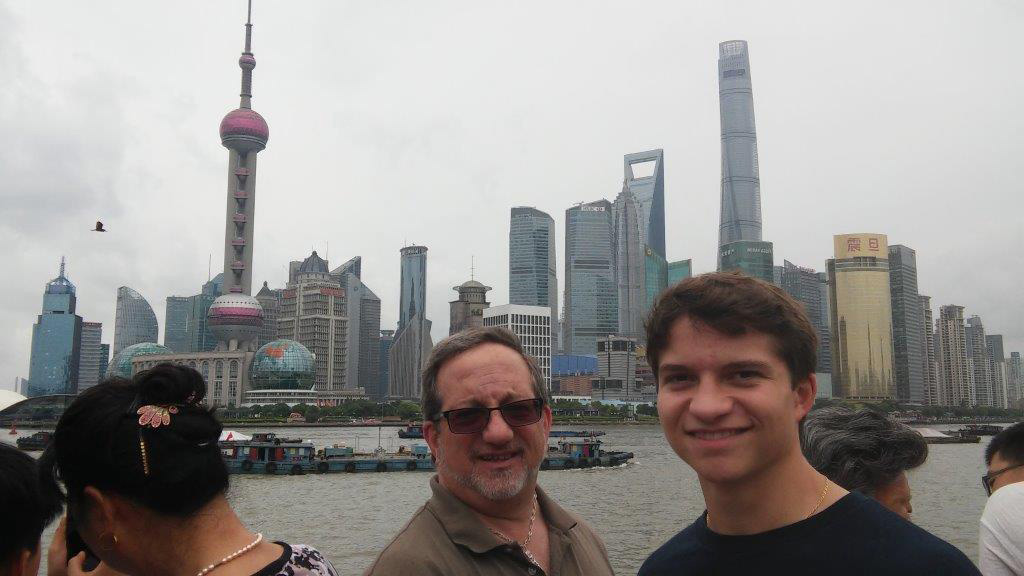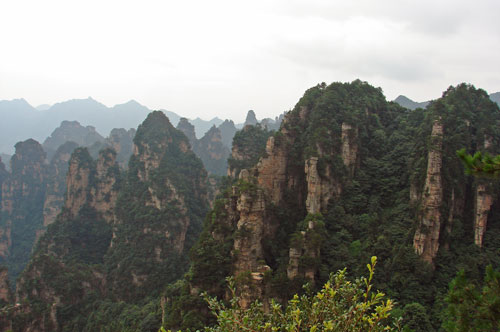Ken's Trip to China - July 2015
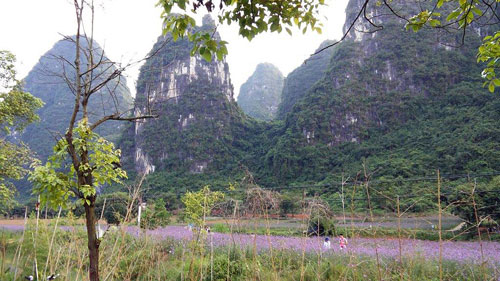
To my clients, colleagues and friends,
As many of you are aware, this summer, my son Russell and I took advantage of a “once in a lifetime” trip to China. My nephew, Zachary, who speaks fluent Mandarin Chinese and who was finishing up a year of studying in China, requested that we join him in touring parts of China before he returned to the US. He was excited to serve as our personal tour guide. My sole responsibility for this trip was to make the arrangements getting us to Shanghai where he was living. Zachary handled the rest, setting the itinerary and travel arrangements, allowing me to relax and enjoy an amazing ten day “educational” experience.
After reading so much over the past few years about the growth of the middle class and the government’s control over the internet in China, we were curious to gather first-hand knowledge that we could share with everyone when we got back home. Zachary’s command of the language, coupled with his translation skills and warm personality, helped to melt away any trepidation that “locals” might have had about foreigners seeking to speak with them. We were very surprised at how willing they became to answer questions and express their opinions about what was taking place in in their country.
Two of the people with whom Zachary engaged in conversation were an owner of one of the hostels we stayed in, and a taxi cab driver who drove us to an airport for one of our flights. Both of them spoke easily about the progress that had been achieved over recent years, but noted that things appeared to be much slower than just a year earlier. They commented that the majority of visitors were not foreigners like us, but were Chinese citizens from other parts of the country. They also noted that recently there were fewer of them.
Knowing my curiosity, Zachary asked the owner of the hostel if he had heard of a CFP®, or if there were personal financial planning professionals available around the country. The translated response was that they only had accountants who assisted with tax reporting requirements. The gentlemen also said that while they knew of people who had invested in the Chinese stock market, most citizens continue to keep their money in savings. There is little entrepreneurial opportunity to finance the purchase of a business, so start-up funding has to come either from savings or borrowing from family or friends. Caring for older family members is also a concern, and very entrenched in their society, with few “assisted living” or long term care alternatives.
We personally experienced how tightly the government controlled access to parts of the internet. We were in China just after the meltdown of the Chinese stock market and the release of the news that the Chinese economy would be growing at a slower pace than desired by the government. Efforts to use our mobile devices to read business news updates from our customary websites back home were repeatedly interrupted and blocked.
As we traveled between the various cities, we saw partially completed construction projects all over the place. Most were in the form of residential high rise units, but we also saw commercial buildings and road construction projects. Many of these projects were initiated by the government to stimulate the economy and to prepare for the continuing migration of people from the countryside to the cities. It appeared, however, that many of the residential projects had recently been put on hold.
In summary, although the Chinese economy did appear to be going thru a period of adjustment, it was still quite vibrant and active. There were no expressions of pessimism or concern. Instead, there was a feeling of optimism as to what the government was doing to produce consistent and targeted growth for meeting the future needs of the country.
As to the trip itself, we did very little of the traditional sightseeing that visitors to China seek to do. Our trip began in Shanghai in a most unique way. The night we arrived, we had dinner at a Kentucky Bluegrass Barbeque restaurant and listened to a quartet of banjo players. One of the musicians was also a Mongolian Throat Singer, where the musical sounds are made by the ability to vibrate the vocal chords. My nephew had told me about throat singing two years earlier after he attended an Arizona State University concert, and was excited for me to see it performed in person.
After a quick tour the next morning of “The Bund”, the waterfront area in central Shanghai, we flew to Guilin City, followed the next day by a bus ride to Dazhai Village. The village is in a mountainous region known for scenic views of it's terraced rice paddies, and served as our first stop for hiking activities.
My favorite part of the trip was in Yangshuo, a small but modern city that lies along the Li River and in the middle of a beautiful assortment of “karst” mountain peaks. The city proper was bustling with buses, cars, mopeds and bicyclists, but when we walked a few blocks away, it became peaceful with scenic views all around. We rented bicycles for excursions through and outside of the city limits, and even took a bamboo raft ride down the Li River.
My son's most anticipated stop was Zhangjiajie City and our visit to Zhangjiajie National Park, where parts of the Avatar movie were filmed. We enjoyed making friends with younger “locals” who wanted to try out the English they learned in school as we hiked up the mountains. My nephew and son could have been rock stars, as they were stopped repeatedly by people who wanted their picture taken with the ‘foreigners”. As for me, guides kept offering to carry me up the mountain on a bamboo chair as they were unsure that the 'esteemed elder' would be able to make it all the way up under his own power - I proudly proved them wrong. We then stayed overnight in a hostel on the top of one of the mountains, before hiking back down the other side of the mountain the next day.
Our trip concluded in Beijing, where we visited Tiananmen Square and enjoyed a dinner of Peking Duck. We had great weather the entire trip, noticing very little of the smog that is often written about affecting Shanghai and Beijing . It was, indeed, a trip to remember for a lifetime.
Please enjoy the pictures below,

|
|
|
| Shanghai - Guilin - Yangshuo - Changsha - Zhangjiajie City - Beijing | |
| 1. Arrive Shanghai City | |
|
|
|
| This bull is by the same artist who created the | Colonial architecture from the 1920 and 30's. |
| bull on Wall Street in New York City. | |
|
|
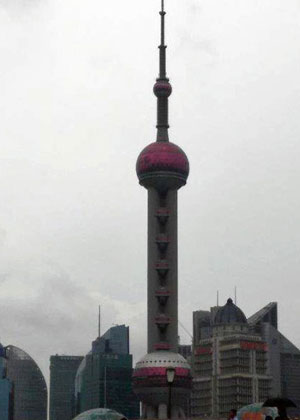 |
| Ken and his son, Russell/ Modern Shanghai from the | The Oriental Pearl Tower |
| Huangpu River, a tributary of the Yangtzee River. | |
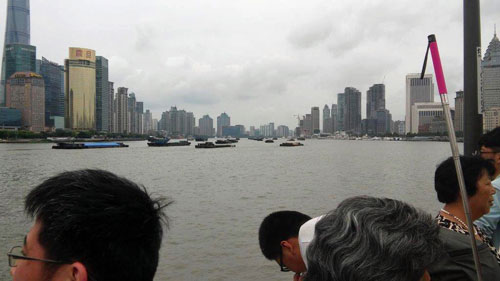 |
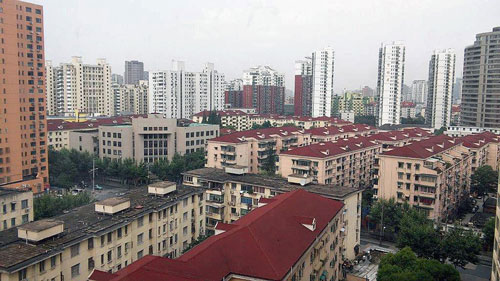 |
| Huangpu River | Shanghai City |
| 2. Fly to Guilin. Spend the night in Guilin City | |
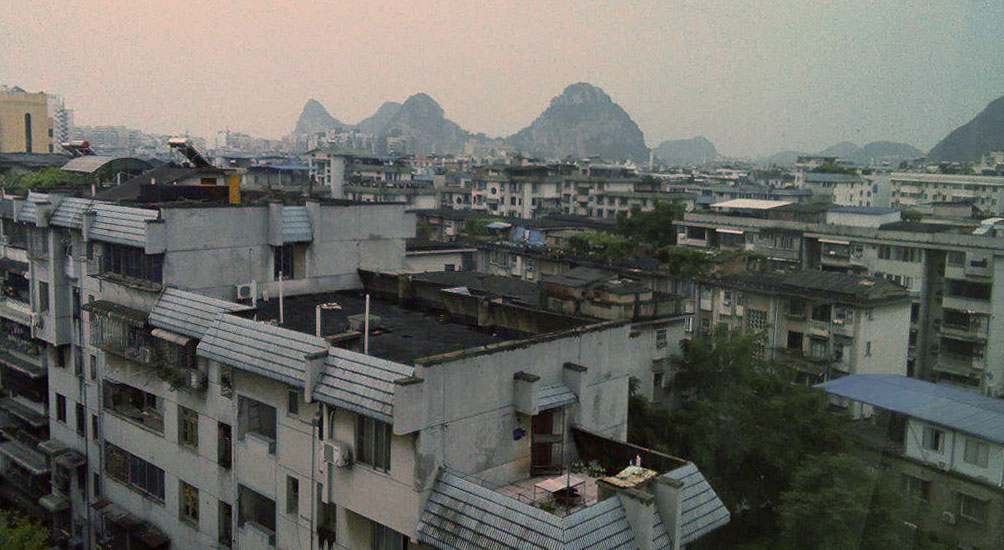 |
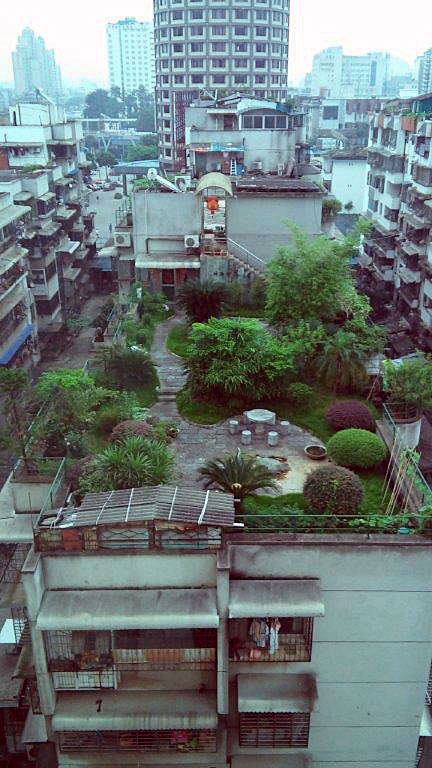 |
| 3. Bus from Guilin to DaZhai Village. Hike up to the hostel. Explore the terraced rice paddies. | |
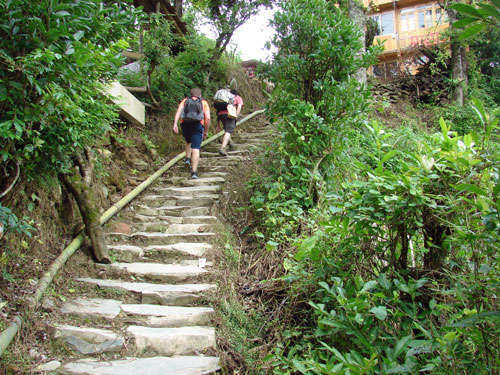 |
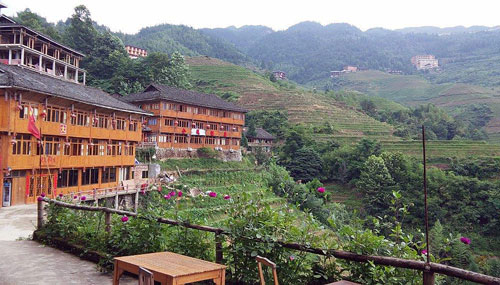 |
| Hiking up to Dragon's Den Hostel | Dragon's Den Hostel, a long hike up. |
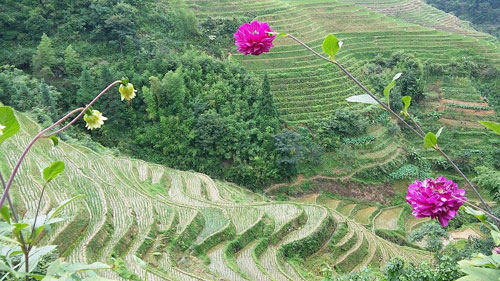 |
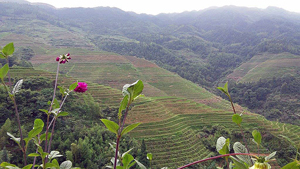 |
| The terraced rice paddies of DaZhai Village. | |
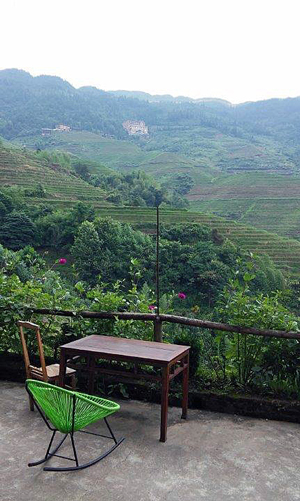 |
|
| 4. Bus back to Guilin. Bus from Guilin to the resort town of Yangshuo. Bike and Hike along Li River and in the karst mountains. | |
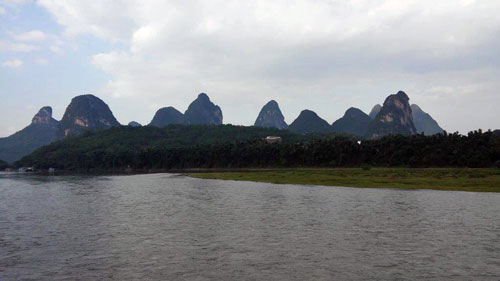 |
 |
| Li River | Karst is a term that describes a landscape |
| formed from the dissolution of soluble rocks | |
| such as limestone, dolomite, and gypsum. | |
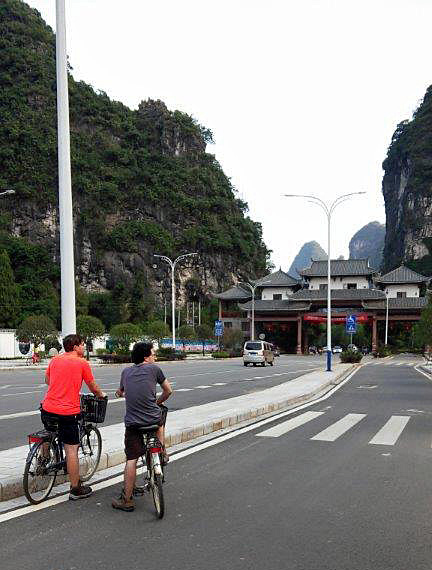 |
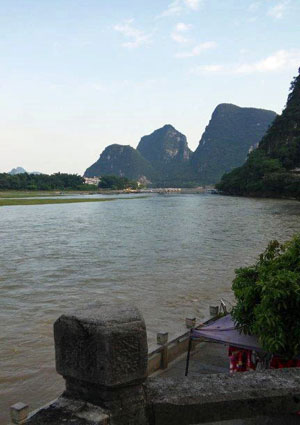 |
| The boys bicycling through the city. | Li River |
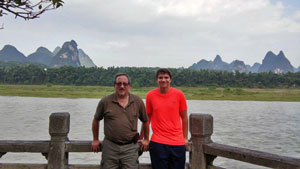 |
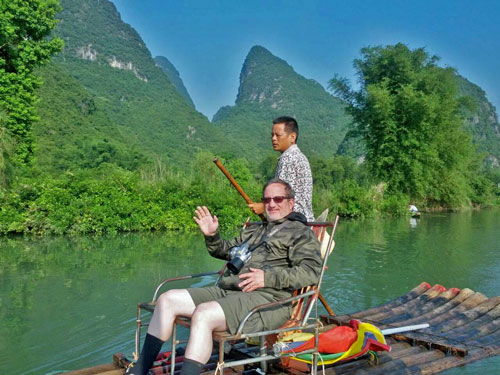 |
| Ken and Russell on the Li River | Floating down the river on a raft. |
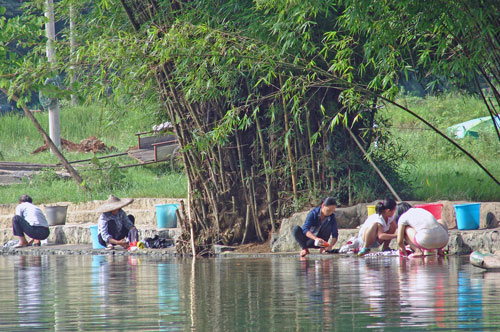 |
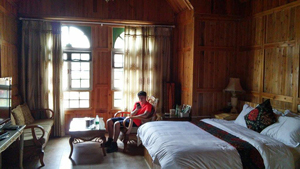 |
| The local laundromat. | Yangshou hostel. |
| 5. Return to Guilin. Train to Changsha. Bus to Zhangjiajie City. Hiking in Zhangjiajie National Park. | |
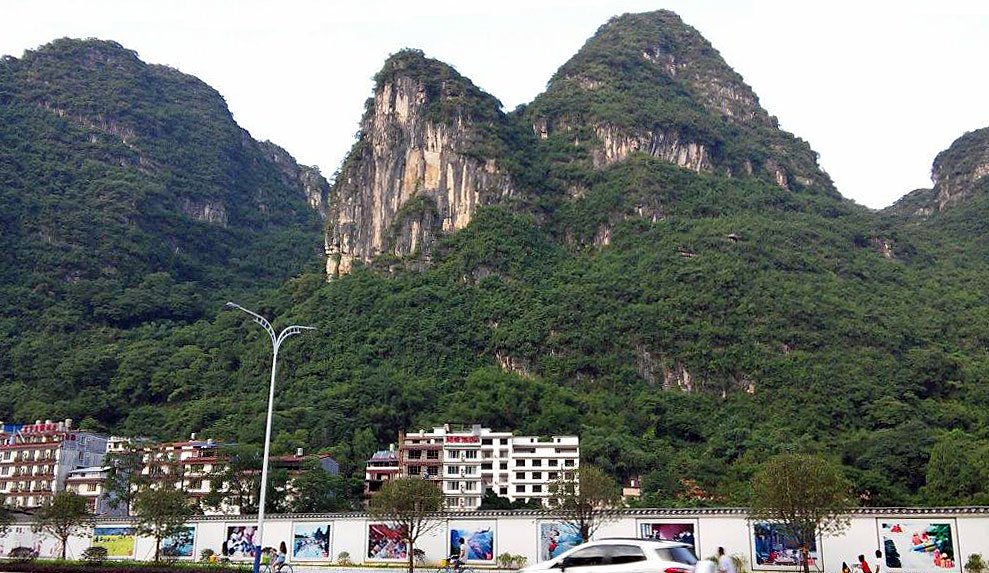 |
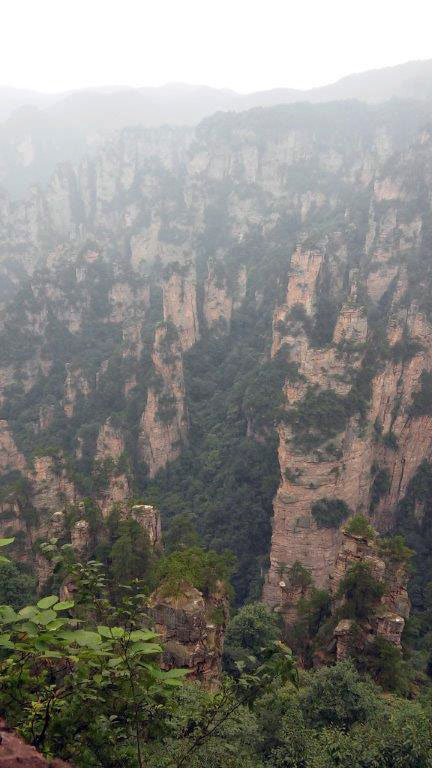 |
| Zhangjiajie City | Zhangjiajie National Park was |
| the inspiration for the floating | |
| mountains in the movie "Avatar". | |
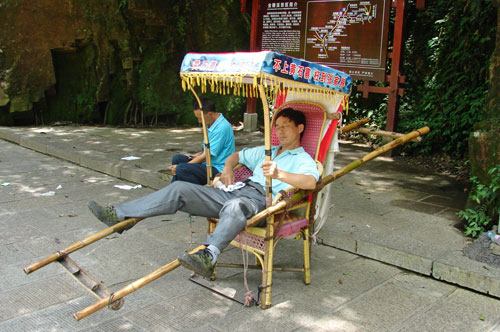 |
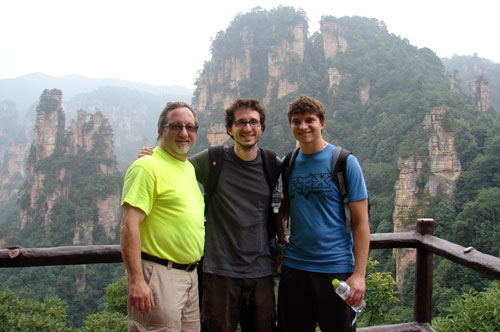 |
| Guides resting. They offered to carry Ken | Ken, Russell and Zach at the top of the |
| up the mountain. | mountain in Zhangjiajie National Park, |
| the 'esteemed elder' having made | |
| it all the way up without assistance. | |
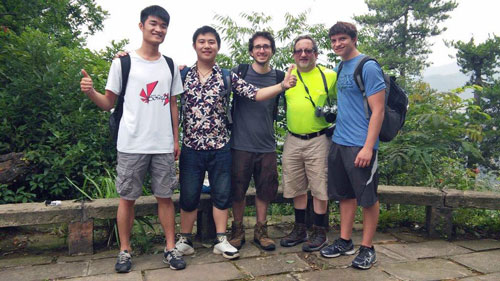 |
|
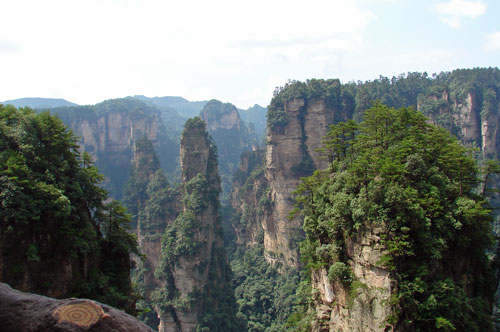 |
|
| Zach, Ken, Russell and 2 new friends | At the summit. |
| hiking up the mountain. | |
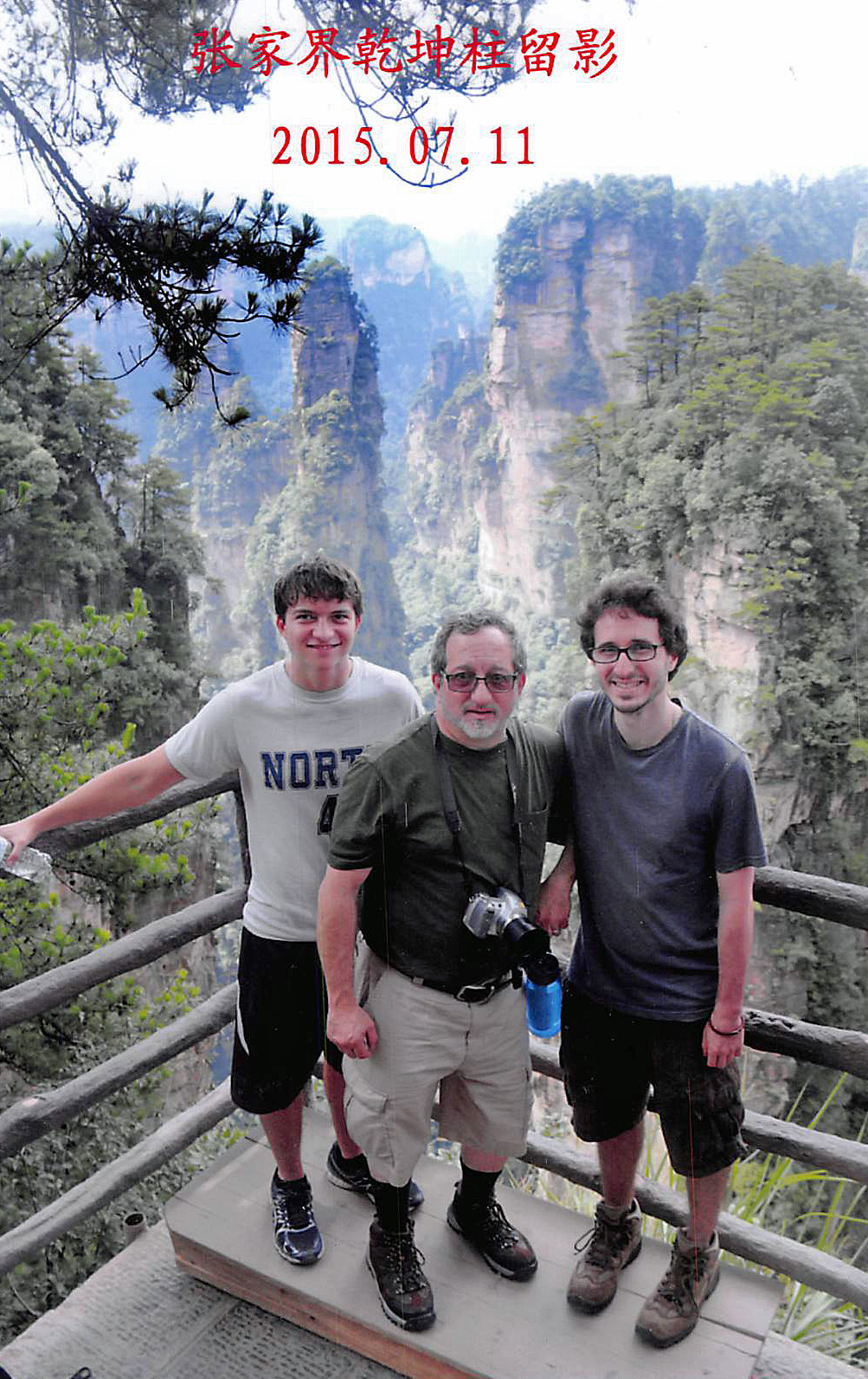 |
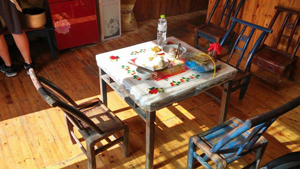 |
| The 3 Musketeers | Breakfast at the Zhangjiajie hostel. |
| Zack participating in the local nightlife. | |
| 6. Bus to Changsha. Fly to Beijing before heading home. | |
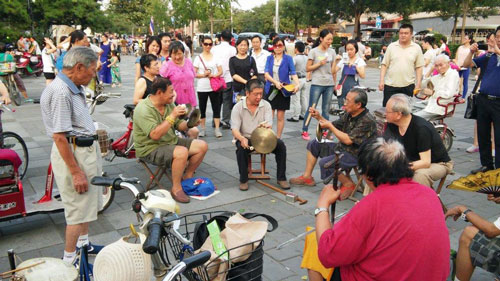 |
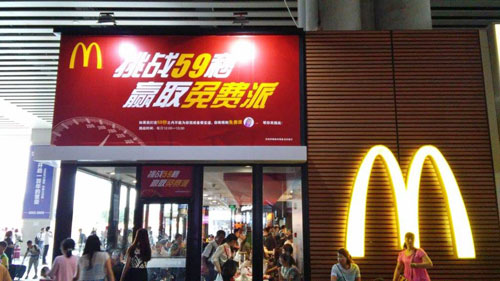 |
| Musicians on a Beijing street. | The ubiquitous arches, |
| found throughout China. | |

